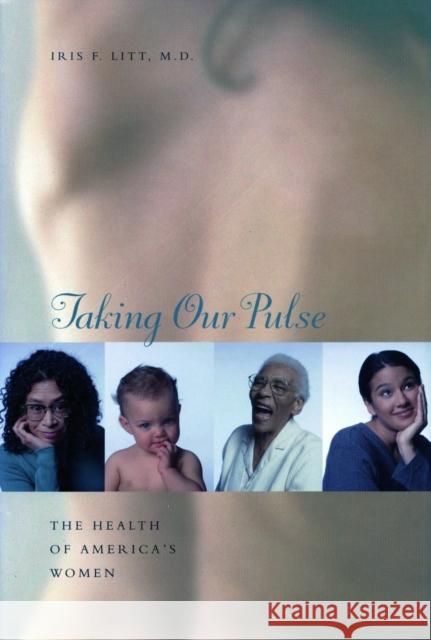Taking Our Pulse: The Health of America's Women » książka
Taking Our Pulse: The Health of America's Women
ISBN-13: 9780804728287 / Angielski / Twarda / 1997 / 368 str.
Taking Our Pulse: The Health of America's Women
ISBN-13: 9780804728287 / Angielski / Twarda / 1997 / 368 str.
(netto: 695,01 VAT: 5%)
Najniższa cena z 30 dni: 720,85
ok. 30 dni roboczych.
Darmowa dostawa!
Taking Our Pulse is a book about women's health: what it is, why it is the way it is, and what needs to be done to improve it. It differs from many other books about the health of women by: integrating up-to-date medical research with practical information for use in daily lives; offering a way of looking at health issues affecting women that accentuates their living better rather than just longer; emphasizing a developmental approach by examining health issues at different stages of the life cycle; and using a lucid, almost conversational, style of presentation that makes complex medical conditions and procedures readily intelligible to lay readers. Furthermore, it is written by a woman who is a physician, an educator of future physicians, a medical researcher, and a student of feminism. Because the field of medicine has been traditionally dominated and controlled by men, male constructs have largely defined the causes and remedies of women's health problems. A host of myths has accumulated about women's health--the beliefs that most women's health problems are related to their reproductive function and that women tend to have more emotional diseases than physical ones. Even today, such simplistic and medically unsound views persist and are reflected in the amount of insufficient research conducted on the specific health needs of women. One of the major aims of this book is to expose these myths, in the process re-educating not only physicians but women themselves, who have been socialized to accept them unquestioningly. After four chapters that deal with life-span differences in women's health (childhood and adolescence, early adulthood, the perimenopausal years, and the older years), the book considers the following topics: sexually transmitted diseases, pregnancy and its prevention, mental health, substance abuse, violence (including sexual and child abuse, rape, domestic violence, and elder abuse), nutrition, medical care, women as doctors, and choosing the right physician.











